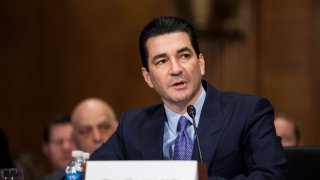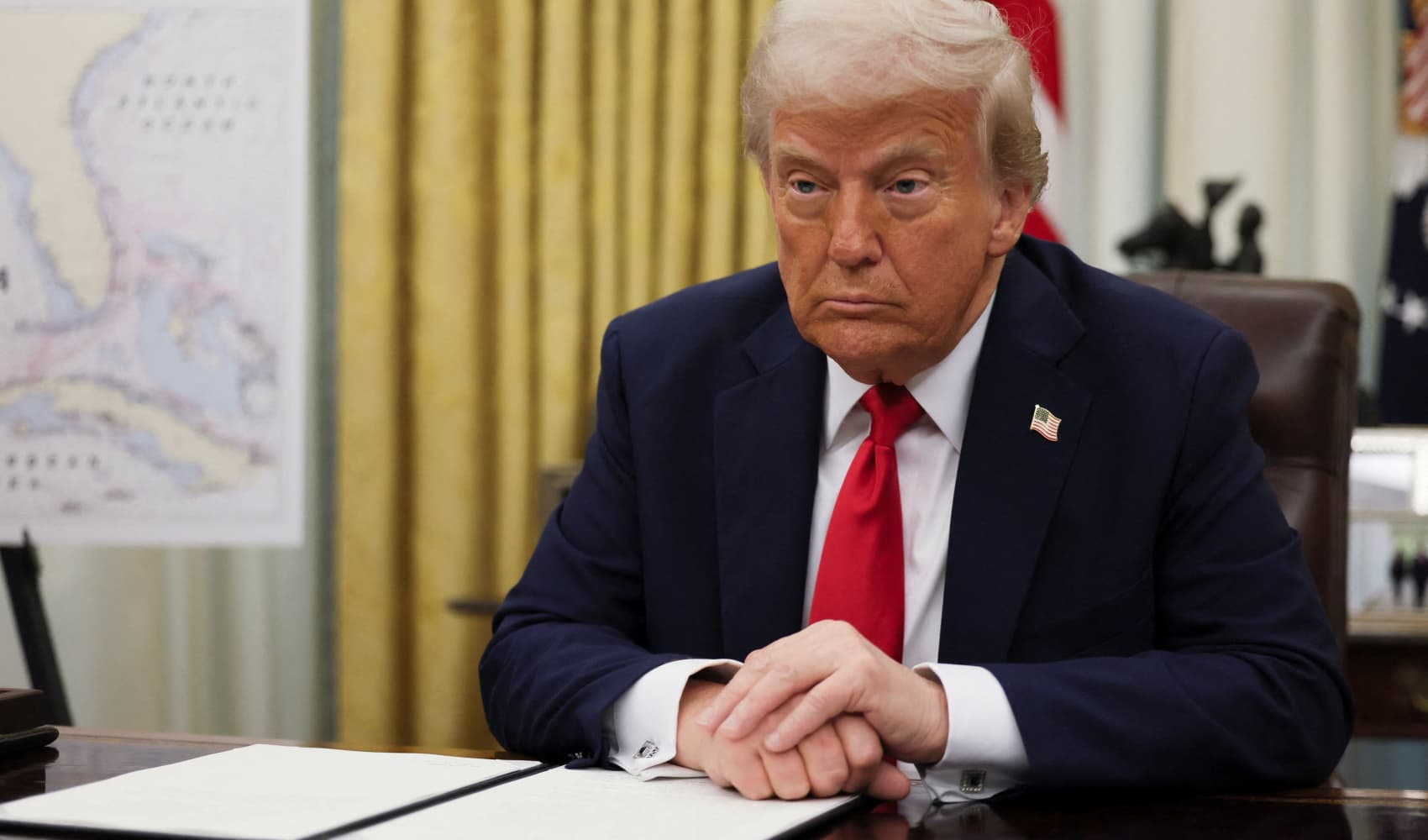
- The Covid Delta variant appears to be "more dangerous" than earlier strains of the coronavirus, Dr. Scott Gottlieb told CNBC on Wednesday.
- However, the former FDA chief said he believes it is likely not a major threat to the U.S. until the fall.
- "People who are fully vaccinated, I think, are pretty well protected against this new variant based on the accruing evidence," Gottlieb said.
WATCH ANYTIME FOR FREE
Stream NBC10 Boston news for free, 24/7, wherever you are. |
Dr. Scott Gottlieb told CNBC on Wednesday he believes enough Americans are fully vaccinated to delay the risk presented by the Delta Covid variant.
"The question is: Are there enough unvaccinated people that this could get into the population and start spreading more widely? I happen to think it's unlikely that this is going to be a threat until the fall, perhaps," the former Food and Drug Administration commissioner said on "Squawk Box."
Get updates on what's happening in Boston to your inbox. Sign up for our News Headlines newsletter.
Gottlieb's comments come as speculation grows that the U.K. could delay the lifting of all lockdown measures in England, set for June 21, due to the increasing prevalence of the Delta variant, which was first discovered in India.
The most severe cases involving the Delta variant appear to be in unvaccinated people or those who are only partially vaccinated, Gottlieb said. "It does seem to be a more dangerous variant. That said, two doses of the vaccine seem to be very protective."
"People who are fully vaccinated, I think, are pretty well protected against this new variant based on the accruing evidence," added Gottlieb, who led the FDA in the Trump administration from 2017 to 2019. He's now on the board of vaccine maker Pfizer.
Money Report
On Tuesday, the White House's chief medical advisor, Dr. Anthony Fauci, stressed the importance of Americans becoming fully vaccinated to protect against the Delta variant. Currently, Fauci said it accounts for more than 6% of the U.S. coronavirus infections that scientists have genetically sequenced.
The Delta variant, meanwhile, is becoming the dominant variant in the United Kingdom. The U.S. and U.K. now have around 53% of adults fully vaccinated against Covid. However, Gottlieb said England's decision to delay the administration of second doses in order to give more people initial shots "probably opened the door to this spreading a little bit more widely."
At a White House briefing Tuesday, Fauci called out as examples Covid vaccines from Pfizer and AstraZeneca — which is used in the U.K. but not the U.S. — saying they were around 33% effective in protecting against the Delta variant after one dose. For Pfizer, that rose to 88% efficacy after the second shot, Fauci said, while AstraZeneca's vaccine was 60% effective, according to the National Institutes of Health.
"It does appear that two doses of the vaccine are more important against these variants than they were against the old strain of the virus," Gottlieb said.
Despite vaccination progress in the U.S., Gottlieb acknowledged there could be worrisome situations in the country involving the Delta variant. "If you have a community where there's a lot of unvaccinated people and you have a super-spreading event with Delta ... you could get an outbreak here."
Covid cases in the U.S. continue to fall. The country's seven-day average of daily new coronavirus infections is around 14,400, according to a CNBC analysis of Johns Hopkins University data. That's about 17% lower than it was a week ago. It also represents an over 60% decline from roughly a month ago. The highest single day of new cases in the U.S. was 300,462 on Jan. 2.
Disclosure: Scott Gottlieb is a CNBC contributor and is a member of the boards of Pfizer, genetic testing start-up Tempus, health-care tech company Aetion and biotech company Illumina. He also serves as co-chair of Norwegian Cruise Line Holdings' and Royal Caribbean's "Healthy Sail Panel."






